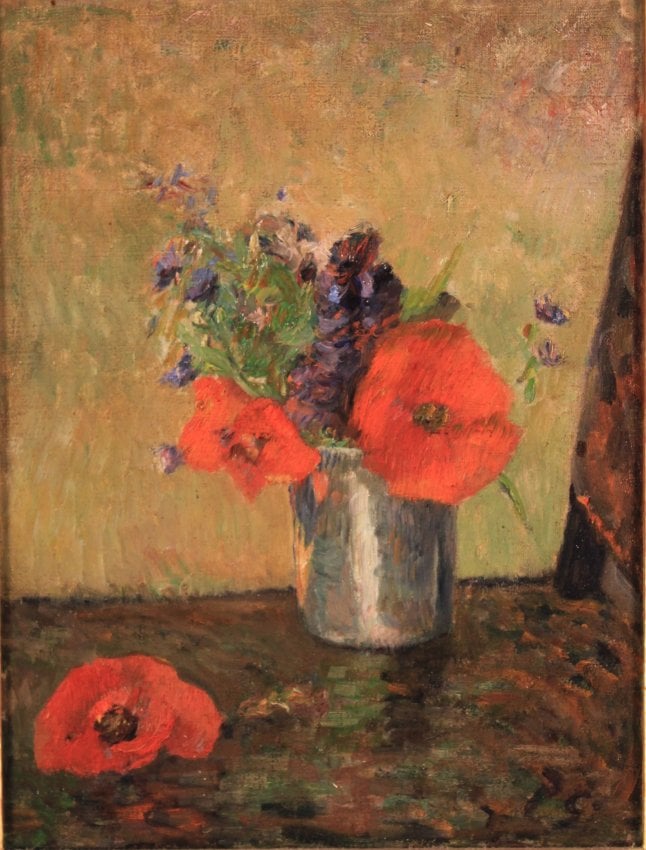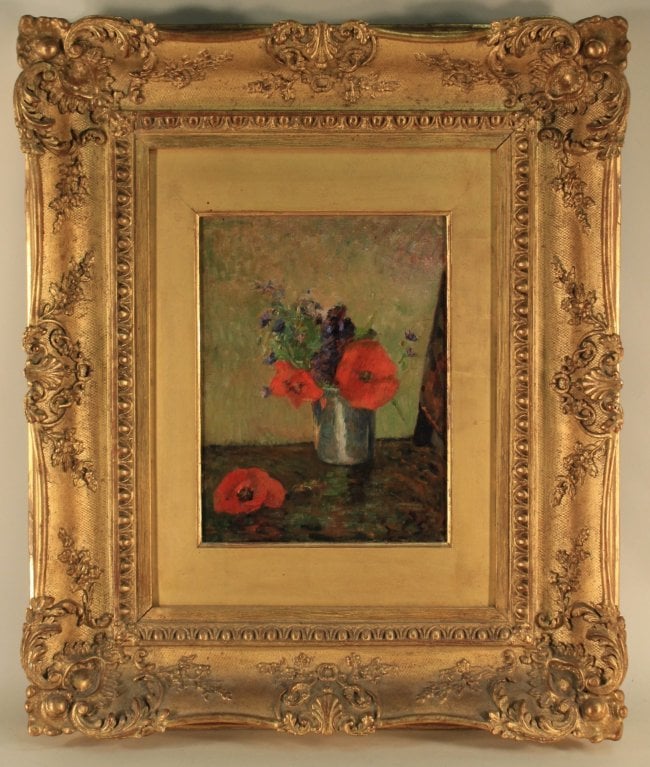Auctions
Long-Lost Painting by Paul Gauguin Hits the Auction Block in Connecticut
The newly-authenticated painting has a presale estimate of $1.2 million.

The newly-authenticated painting has a presale estimate of $1.2 million.

Amah-Rose Abrams

A long-lost work by French Post-Impressionist Paul Gauguin will hit the auction block in Connecticut, after hanging on the wall of a Manhattan antiques dealer, who was completely unaware of its legendary author, for over 30 years.
The painting, Fleurs D’Ete Dans Une Goblet (1885), appears in Gauguin’s catalogue raisonné and will go under the hammer on June 29 at Connecticut’s Litchfield County Auctions with a presale estimate of $800,000–1.2 million.
It is thought the painting was sold after Gauguin’s death to the Paris dealer Ambroise Vollard, whose records state that he bought a painting from Gauguin’s widow depicting “blue flowers.”
According to the Art Newspaper, the work was then sold to an unknown collector and then, in 1950, the work was purchased by New York dealer Gilbert S. Khan. The antiques dealer, who wishes to remain anonymous, bought the picture in the 1980s, unaware of the work being by Gauguin, and hung it on his wall to enjoy until now.

Paul Gauguin, Fleurs D’Ete Dans Une Goblet (1885) in a frame. Courtesy Litchfield County Auctions.
When the painting was consigned to the Litchfield auction house, it was noted that the frame was inscribed with the name of a fellow impressionist Paul Signac, and subsequently that the frame had been reused as it did not fit the picture. On taking a closer look the initials “P.G.” were discovered on the painting and then identified as Gauguin’s.
The painting matches a black and white photograph that appears in the 2002 Wildenstein Institute catalogue raisonné at number 172. As the photograph, taken in the 1940s, was in black and white, it had always been difficult to identify the flowers that Gauguin had depicted, which are colorful poppies, lupines, and perhaps cornflowers.